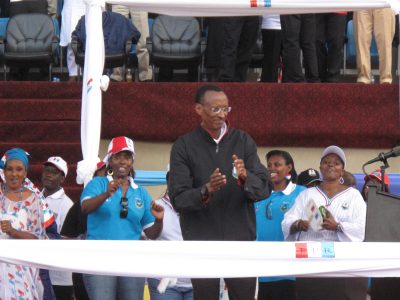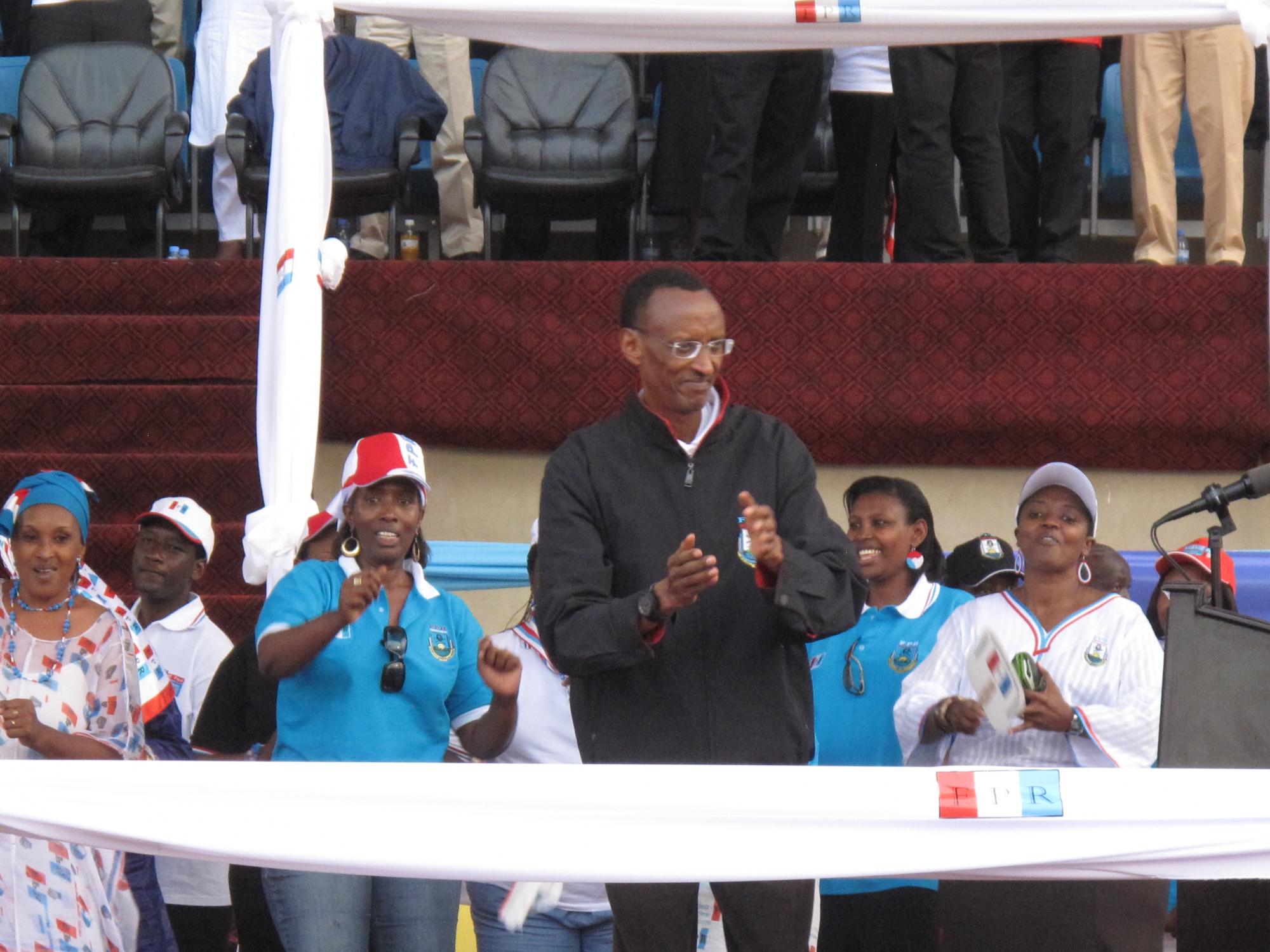 Kigali felt muggy on July 20, the temperature unusually high. The police and army were on high alert at every corner as the Rwandan capital was getting ready for the big political event. About to begin was the two-week election campaign leading up to presidential elections on August 9.
Kigali felt muggy on July 20, the temperature unusually high. The police and army were on high alert at every corner as the Rwandan capital was getting ready for the big political event. About to begin was the two-week election campaign leading up to presidential elections on August 9.
From the early morning, the National Stadium had been filling up with government supporters bused in from different neighborhoods and suburbs of Kigali. Water was provided, but not food. The campaign was supposed to start at noon, but President Paul Kagame arrived around 5 p.m., when many supporters looked exhausted and dehydrated.
A loud Congolese band was singing and shouting political songs and slogans, and cheerleaders were getting men, women, and children to their feet: “Kagame! Paul, Paul Kagame!” Thousands of people in the stands were wearing dresses of different colors, their bodies forming the president’s name.
Outside the stadium, the city felt tense. I stopped an office clerk on the street and asked him whether he will vote for Kagame. “I will,” he replied, eyeing me suspiciously. “He promised to raise wages. Under him, Rwanda is stable.” Then he looked away and moved on.
Kagame, the incumbent president from the ruling Rwanda Patriotic Front (RPF), will almost certainly be re-elected for a second seven-year term. Most opposition leaders are dead or face accusation of “serious crimes.”
“In Rwanda, politics is the preserve of elite actors who represent about 10 percent of the population,” the Mail & Guardian recently commented. “The rest has almost no say in the political process.”
Last week one of Kagame’s opponents — André Kagwa Rwisereka, an outspoken critic of the regime and vice president of the Democratic Green Party, which the government blocked from registering for presidential elections — was found dead in a swamp near his abandoned car. His head was almost severed from his body.
According to a BBC report, André Kagwa Rwisereka’s “death follows other attacks on critics of President Paul Kagame’s government. Last month, a former head of the army, Lt. Gen. Faustin Kayumba Nyamwasa, was shot and wounded in South Africa. The general alleges that it was an assassination attempt ordered by Mr. Kagame. Shortly afterwards, a Rwandan journalist investigating that incident was shot dead here in Kigali. Human Rights Watch says only an independent enquiry with foreign involvement can establish what really happened to Mr. Rwisereka.”
In an interview with Associated Press, Foreign Minister Louise Mushikiwabo said, “We certainly might not be a model government for a lot of people, but we’re not a stupid government, and we will not try to kill three people in a row right before election, an election in which we believe strongly that President Paul Kagame would win.”
Meanwhile, Victorie Ingabire Umuhoza, chair of the main opposition party is under house arrest, accused of denying genocide. Several of her colleagues have been allegedly arrested and tortured.
The clean streets of the capital are decorated with flowers. They are in stark contrast with the misery in which the majority of Rwandans live in the countryside. Enormous divisions are evident, in both standards of living as well as in the interpretation of the past. But discussion of these differing perceptions is not permitted.
Divisions are also appearing in the West. While the United States and United Kingdom almost unconditionally support Kagame, some Scandinavian countries are now cutting aid because of the human rights record of Rwandan government. The Spanish prime minister cancelled a meeting with the controversial leader. Kagame may well win a second term this month. But he might find himself increasingly isolated, both domestically and internationally.
